A Roundtable at Rundbar
Discussing the state of natural wine with Burgenland vigneronnes Stephanie Tscheppe-Eselböck and Maria Koppitsch, Rundbar's Moritz Herzog and Dave Ferris, and Ruby Wine's Aran Healy.
Opened in April 2022, central Vienna’s Rundbar (often styled “R&Bar”) has fast become the premier social hub for the city’s natural wine scene - a place where, amid the elaborate network of afterparties of the annual Karakterre tasting, one reliably runs into friends from all over.
Before Rundbar, notes co-manager (and Kollektiv Peternell co-founder) Dave Ferris, “There was never really a wine bar in Vienna. A lot of places that started that way eventually became more like bistros or restaurants. Not the sort of place you can pop in and have a glass or share a bottle and maybe eat a plate or two.”
Serving small plates, and an extensive selection of natural wine throughout the workweek, Rundbar is the project of longtime Austria natural wine importer and retailer Moritz Herzog of Weinskandal. Herzog has imported natural wine to Austria for fifteen years and maintains strong links to the natural wine scene in the Roussillon, where he was formerly involved in the Domaine Riberach project. He tapped veteran Vienna sommelier Stephan Martin to manage the bar alongside Ferris; chef Mario Galbavy turns out charcuterie, cheese plates, and smalled composed dishes from the bar’s small kitchen.
“It's early to say, but people have been very receptive,” says Ferris. “I'd like to think its because we mix a casual atmosphere with an exciting list, simple good food, and knowledgeable people.”
Herzog and Ferris kindly invited me to present The World of Natural Wine in the bar’s cosy back room in mid-January, an event that became the occasion for an informal round table discussion of natural wine in Austria and beyond. Here are some highlights from the evening’s discussion.
A ROUNDTABLE AT R&BAR
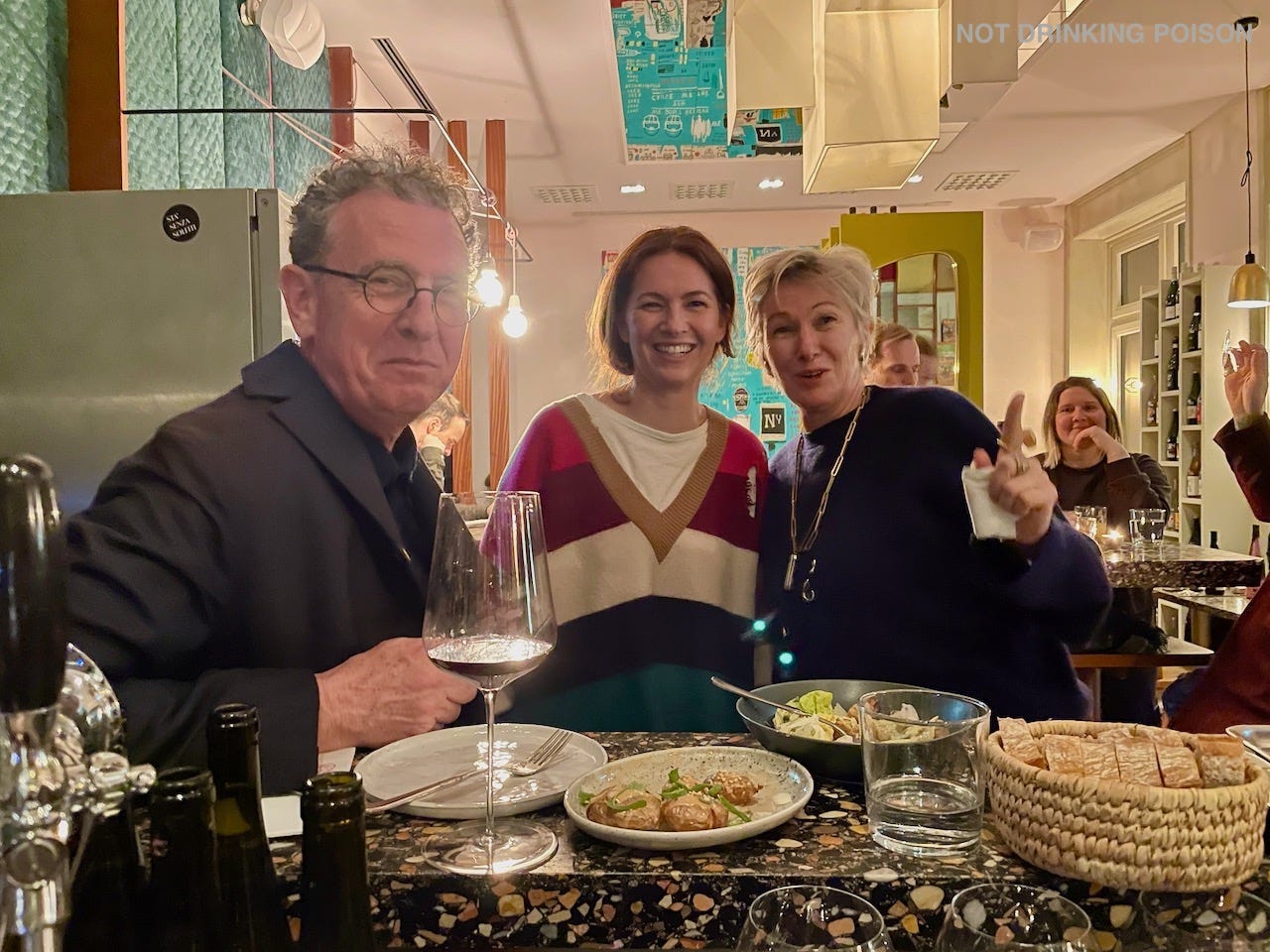
What follows are selections from a live discussion that took place on January 17th, 2023. Quotes have been condensed and edited for clarity.
On writing about natural wine:
MARIA KOPPITSCH: What I like about the natural wine scene now, and the books that are coming out, is that the farming has a voice now. There’s always a few pages about farming, and when you talk about winemakers, there’s always a mention of farming techniques.
In the past, it felt like wine books were mostly about flavors and colors. That was easy, because you don’t need to talk to a winemaker if you want to talk about a flavor profile. That’s why I think the whole wine market concentrated so much on the flavors, it was so easy to understand. And journalists didn’t need to have any knowledge of winemaking processes: you had it all in the glass.
Now with the natural wine scene, it’s different. I think a journalist cannot succeed in the natural wine industry if he or she has no knowledge of farming processes and vinification processes.
STEPHANIE TSCHEPPE-ESELBOCK: That’s true. But I think the problem nowadays is we talk way too much about how long things macerate, in which vats, how long on skins... We talk about the cellar. And I’m like, “Why do we talk about this?” I don’t want to talk about the cellar because there is nothing happening in the cellar. It’s one of the reasons we produce wine like we do.
AARON AYSCOUGH: In reference to what Maria was saying - I think it’s because of the Internet. I don’t think there would be a natural wine scene without the Internet. In 1995, if you wanted to know what racking a wine looked like, how would you do that? People were just talking to importers and sommeliers.
Whereas today we’re in this moment where you can look on Instagram or Youtube and you can actually see these things happening. Winemakers are showing what they’re doing. It’s visual. You can look at the way cellars are built, the tools people are using, and you can recognize them. It’s really interesting. Without the Internet, I certainly would never have been able to start writing about wine. Nowadays, knowing about winemaking is an obligation. We look like fools if we’re writing about natural wine talking about medium-bodied roses and bullshit. It’s outdated now.
But to go back to what Stephanie was saying - personally, I still have sympathy for trying to know why something tastes like what it tastes like. I think people grasp towards the cellar techniques, because farming systems take so much longer to know.
MK: And to understand.
DAVE FERRIS: I think also, when you start to know more about wine, people like numbers. People feel comfortable with numbers.
STE: People need boxes. And I completely understand. But I think it’s time to get out of the boxes. I don’t put people in a box, and I don’t put wine in a box. It’s time now to break that. And if, with natural wine, we take the occasion to put ourselves in a box, then we’ve failed, I think.
AA: In wishing to avoid being put in a box of any kind of practice in vinification, the danger is you can wind up with a situation where you’re only asking, “Do you like it or no?” Then suddenly we’re doing the same thing as Gallo, or any industrial winemaking concern. With this emphasis on consumer subjectivity: the idea that whether you like it or not being the only thing that matters in a wine. As annoying as it is when people ask fussy questions, it’s better than them not asking any questions.
STE: I’m not saying people shouldn’t ask questions. But even if it takes a little bit longer, we should talk about the farming process. It’s more complicated, but we should take the time.
On the economics of producing natural wine:
MK: I have no idea about how it is in Oggau, but in Neusiedl the prices have gone crazy over the last ten years. Where we are, we’re close to where Volkswagon has factories. A lot of managers live in our village, and they think it would be romantic to have an orchard or something, so they start buying a lot of land, and they pay at least double the price of what a farmer would pay. So if we would like to grow our estate, it would be nearly impossible for us to buy the land, because it is too expensive for us.
The farmers aren’t interested in selling when they know there is someone who would pay more. It’s just human nature. You become greedy instantly, so they would never sell it at a cheaper price.
In farming, there is no quick money. It takes generations, and it’s always a modest income, and you’re constantly investing in your farm, from generation to generation. And now this quick money comes in, from the stock exchange, or the finance industry, and it’s hard to compete with that. But if you’re thinking long-term, you’re not interested in selling your land, because it’s what you live from.
MORITZ HERZOG: This becomes a question about where politics should begin. And I think this is definitely a political issue, to preserve the rural area, or the people living there. In Carinthia, at the lakesides, it’s crazy. How can people afford anything? I can’t afford to go there - only when people invite me. And even they cannot buy land, to expand their hotel, or to build a house, because out there’s international money buying everything for ten times the price.
ARAN HEALY: In California, it’s a big problem. In Napa and Sonoma, big names with high grape prices and high real estate prices, people don’t want to take the risk of making natural wine. It’s too expensive. So people make natural wine in the lesser-known areas. I don’t know as much about Austrian wine; it’s my first time here. What I do know of Austria, from when I was doing my sommelier studies, is just the classic names, the classic regions. And it’s harder to find wines I would drink from those regions, as compared with lesser-known regions of the country. I think the same rule applies within French wine.
DF: I think with Austria, France, and Spain, it’s a similar thing. The classic regions that you learn about in sommelier school are not the regions that are producing the most natural wine in these countries. In Austria the forefront is Burgenland; in Spain it’s Catalonia, which was never seen as a great region for Spanish wine; then in France the Beaujolais, the Languedoc. They’re not the biggest ones for classic wine drinkers.
STE: Maybe this will sound stupid, but you could break it down to: maybe people are just lazy? If I were to have a winery in Napa, and the business was working well already, because people love to drink Napa and it’s written on the label, I’m not quite sure that I’d then say, “Ah, I’m changing to natural wine, because I think that it’s so cool to be in this scene.”
It’s like when I look at Wachau. It’s a beautiful old wine region. I’m not sure they wouldn’t still have the opportunity to turn it into something nicer and to have more impact if they were to make natural wines. But my explanation is that they’re lazy. People think, why should I change, if it works?
It’s the same with art, for example. If you have money, and you’re cultured, and you have everything given to you, there isn’t the need to do something new… You need the fire. The fire burning.
MH: The next question is, in which direction will natural wine go? Will it become this big business thing? Will it end up like Napa? There is now this big thing with Ganevat with the Russian investment. How high will these prices go?
I’ve been importing natural wines now for fifteen years. As a young importer, it was great, because you could start easily. It was never really important to have big money because the wines were quite reasonable to buy.
Will that change? Because what I also think was so nice about natural wine is that a lot of people from outside - enthusiastic people - came in and made these markets. These importers were former sommeliers, or philosophers, and they set off with their cars. And I think this is partly what made the scene so vivid. There were so many interesting people. They were not so commercially-driven. Will it stay the same?
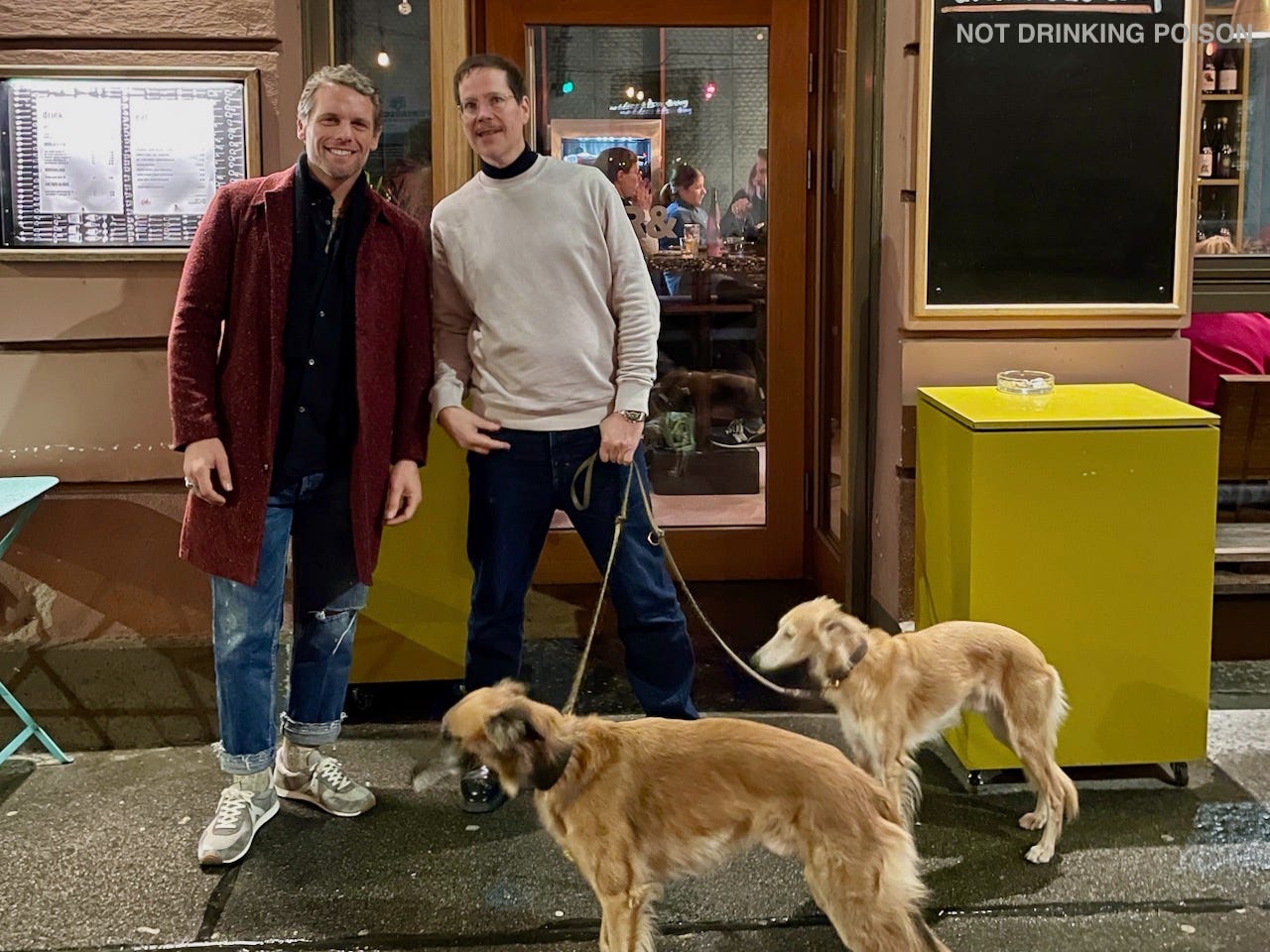
On selling natural wine in France:
MH: When I was working in France, there was just one market, and it was Paris. There was a little bit around Nice. But north? Nothing. You always had to go to Paris. And every market was separate. It wasn’t a French market. It was Paris, and these small places.
I tried to sell more conservative wines to France, and it was impossible to sell any bottles of very well-known Austrian producers to France. No one wanted zweigelt, blaufrankisch, chardonnay.
I used to produced wine in the Roussillon, where I met Tom Lubbe from Matassa. He says it took him a decade to sell any bottles in France - because he’s South African.
STE: In my experience, it wasn’t easy, but it was doable. Because it’s a country where there is wine, they produce wine, they have a culture of wine.
MK: When we started selling in France, the question was always, “Do you also have some pinot noir? We’re really interested in pinot noir.” It was the last thing I would have expected.
FIN
Rundbar
Lindengasse 1
1070 VIENNA
Austria
Tel: +43 676 83858696
FURTHER READING
When Natural Wine Meets Mid-Century Design: my take on the Tscheppes’ 2021 collaboration with Danish furniture design brand Fritz Hansen.
Gut Oggau x Fritz Hansen: An interview with the Tscheppes on their furniture collaboration.
Kollektiv Peternell: Bringing It All Back Home.
Dining on the Wine Trail: Bruder, Vienna
Ten Questions for Paul Bodner of Glacis Beisl

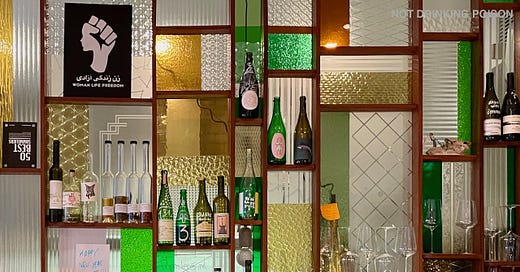


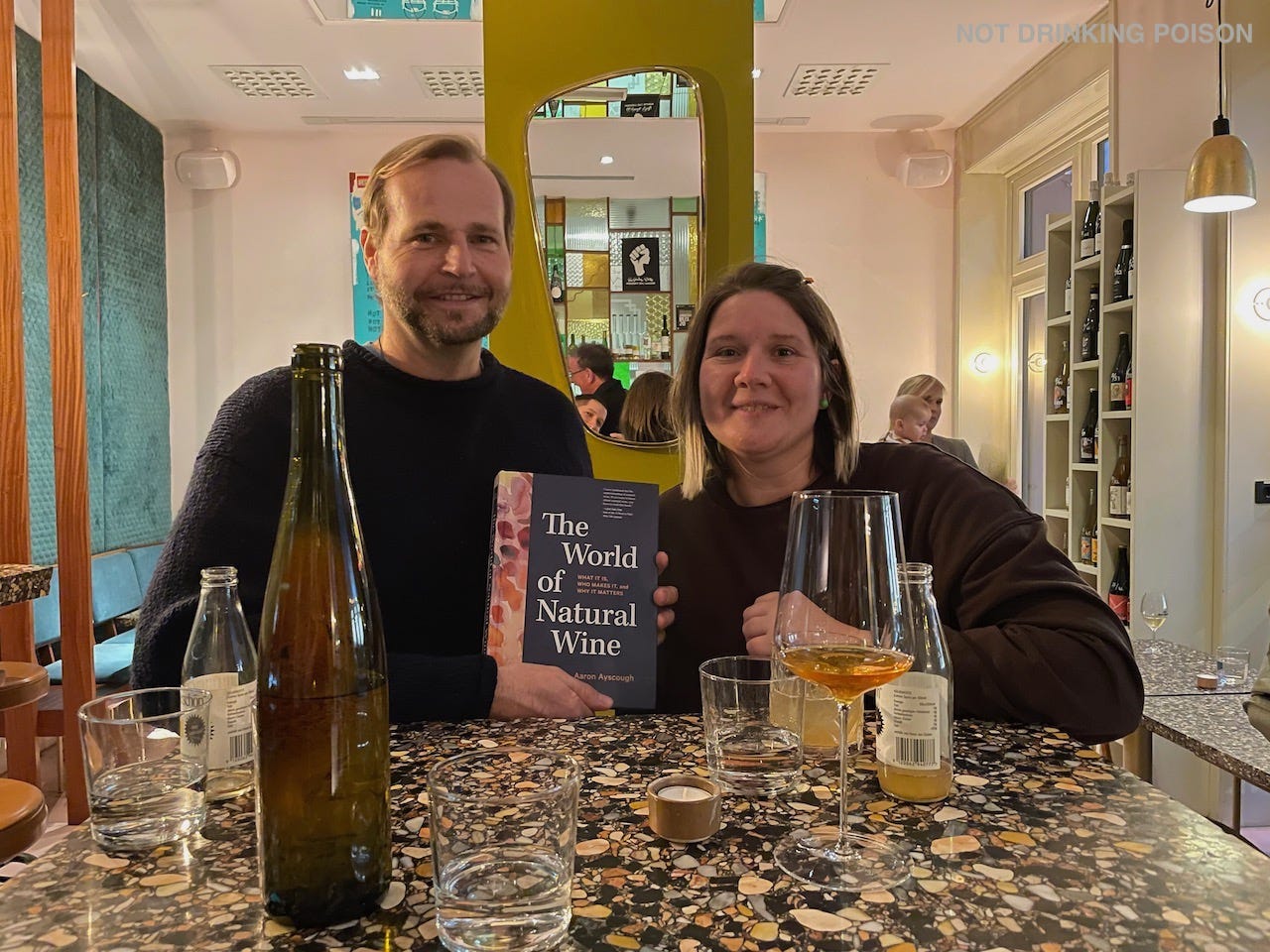
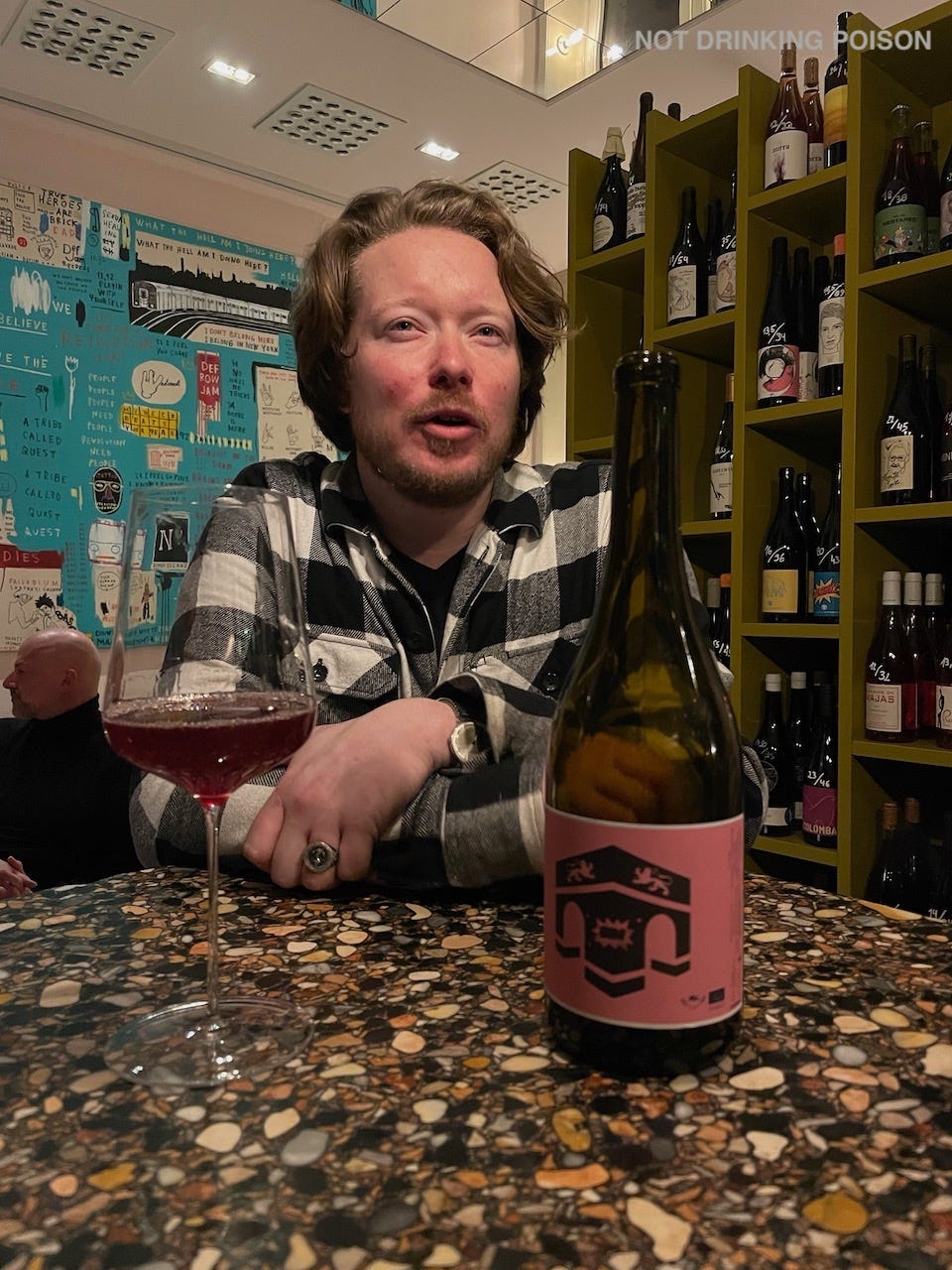
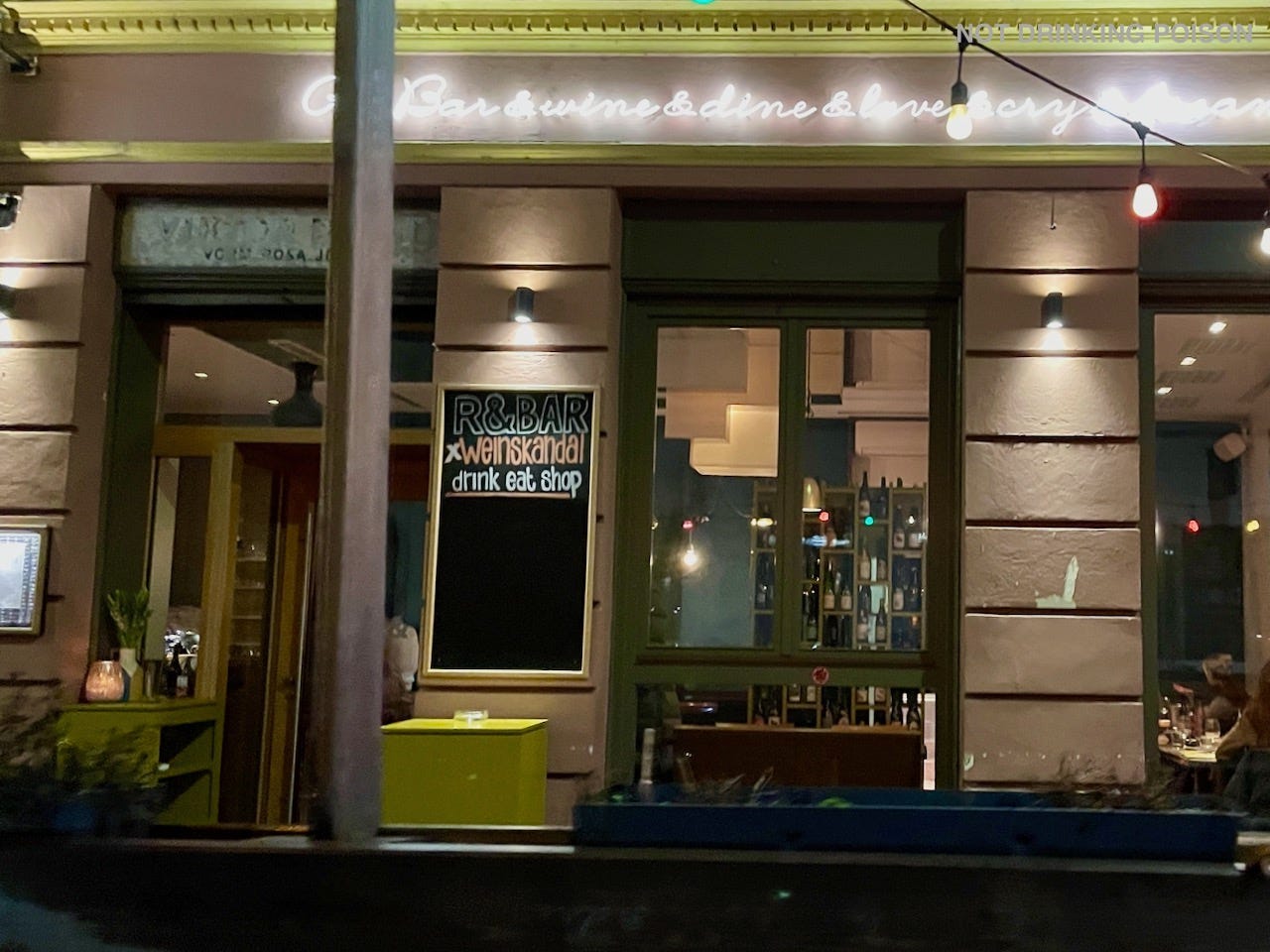
The last comment is super believable. I moved to Lisbon 6 months ago, and it's amazing how credulously people have responded when I suggested drinking Spanish wines here. The big European wine countries stick to their own (Italy, Portugal, Spain, France, for example). It's only in the countries that produce much less volume (and have a less well-known reputation on the foreign market) such as any Balkan country, for example, that will drink wines from other countries -- that is, if they can afford them. For example, Bulgarians are much, much more likely to be open to drinking French wine, than vice versa.
So, France is not the only one like this for sure. Natural wines or conventional wines, doesn't matter. It is a general problem of European wine culture parochialism. But for a non-wine producing country (with a lot of money) like Sweden or Denmark, it is a different story entirely.